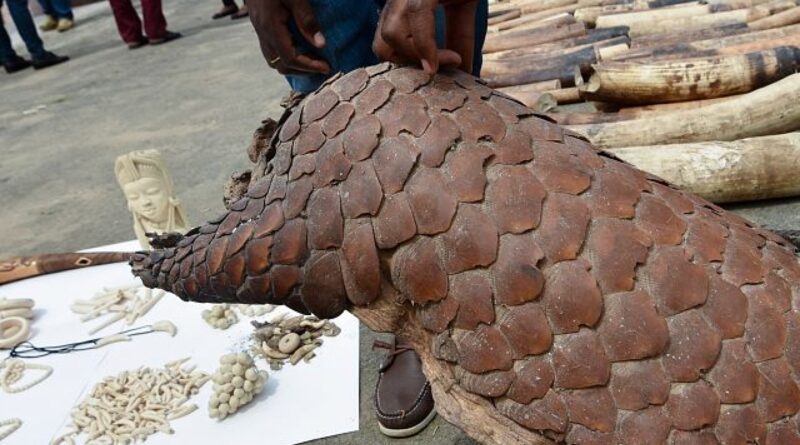World Pangolin Day: Poaching, trafficking threaten African pangolins
A curious creature looks like it’s straight out of Jurassic Park. It is however no dinosaur. This is a pangolin and if more isn’t done to protect it, the pangolin may well face the same fate as the dinosaurs. Unlike our understanding of most dinosaurs, these mammals are shy, defenceless and harmless yet they face a myriad of challenges: poaching, loss of habitat, and general human ignorance.
Some are hunted in Africa and exported to countries in Asia where they are considered a delicacy. Their scales are made of keratin that some believe have medicinal value.
At the National Museums of Kenya, is a sad collection of preserved pangolins and scales. Officials here say 120,000 kilograms of pangolins were exported from Africa between 2010-2014. The museum’s research scientist Benard Agwanda helps Kenyan law enforcement agencies to identify pangolins seized at airports.
The aim is to secure convictions against traffickers of this endangered species. “Cases that we have seen in the recent past include a nice suitcase which we expect to be containing suits, clothes and dresses and yet they are full of pangolin scales. We have also witnessed a case where a container which is ready for shipment is packed with a whole body of pangolin,” says Agwanda.
Kenya is a hub for trafficking pangolins from Cameroon, the Democratic Republic of Congo, Central West African Republic and Senegal. Between 2014 and 2015, Kenya had one case of illegal pangolins seized at the airport. However from 2021 to date, there have been 20 cases of illegal pangolins seized at the airport, suggesting that cases of poaching have increased.
Adding to their woes, was a theory that the pandemic originated from pangolins – a myth that has since been disproved but still casts a scaly shadow over these creatures.
“Recently in 2020, there was a report that pangolins have got a virus that possibly is the progeny to COVID-19 and that turned people’s thoughts about pangolins. If you don’t do research and understand the background of such stories, we are unable to help bad media around pangolin and that can add another threat to pangolins. So we may lose pangolins faster than expected if we do not stop such media with facts, (if) we don’t remove myths with facts,” says Agwanda.
There are eight different species of pangolins, all threatened with extinction. The International Union for Conservation of Nature (IUCN) has given them statuses ranging from vulnerable to the critically endangered Sunda pangolin and Philippine pangolin.
In Kenya’s rift valley, the Maasai of Narok have different perceptions about the creatures. For instance, older people tend to associate pangolins with good luck unlike millennials who tend to think otherwise.
“People don’t know what a pangolin is so when they see a pangolin, they think that it is something harmful or something poisonous or dangerous so the first instinct of every human when they see something harmful, it is time to kill it or hit it to get away from it,” says Beryl Makori, a research scientist at The Pangolin Project, a non-profit organisation dedicated to pangolin conservation research and protection.
Makori says that the lack of awareness works to threaten the existence of the endangered creatures.
Scientific research into the lives of the nocturnal and secretive creatures is still ongoing and not much is known about them.
The animals have also been affected by continued loss of habitat as humans continue to encroach into their natural homes. The introduction of electric fences has proven particularly fatal.
“Everyone now when they get their own piece of land, they try to have a fence around it to protect it either from other humans or dangerous wildlife like elephants or lions. So with electric fences, the pangolin, when they get electrocuted instead of moving away from the fence, they tend to curl around the fence because that is their defence mechanism and when they do this, they keep getting electrocuted until they die,” says Makori.
Possible strategies to protect pangolins include increasing awareness among community members and law enforcement agencies as well as more scientific research to get a deeper understanding of the animals.

